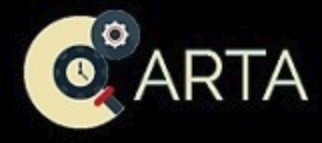CARTA-SAS Beehives Analytics REU
Overview
The Beehive Analytics REU project is a joint effort between the NC State Center for Accelerated Real Time Analytics (CARTA/NCSU) and the SAS Institute. As part of their corporate sustainability efforts, SAS Institute (a CARTA/NCSU Industry Member) has invested in a collection of beehives on their campus in Cary, NC. Recognizing the environmental importance of honeybees in the global food chain, the SAS hives are both an environmental investment and a research platform to understand beehive health. Electronic tools have been used to monitor beehives for over sixty years, but the application of advanced analytic techniques is a new contribution to this important industry.
The REU students will be part of an interdisciplinary team that will include experts in Data Science, Agricultural Technology, and Apiology. Participating students will learn how advanced analytics computing can be applied to real-world problem domains that are not traditionally associated with computing technology. The students’ project will explore analytic technologies for monitoring beehives in real time. The project will build upon prior work using isolated short-term data to develop a pilot system for real-time monitoring and analytics using a variety of non-invasive Internet of Things (IoT) data sensors in beehives [1]. The overarching goal will be to develop a general process for transforming fixed-time analytics into real-time analytics workflows.
Participating students will receive a stipend for their participation, which will run in the Spring 2022 semester and through the Summer 2022. Applications will be accepted through 12:00 PM EDT on Wednesday, December 9, 2021 See below for application instructions.
Program Components
The students will begin by studying the fundamentals of real-time data analytics, research methods, research ethics, and project planning and management. They will also review prior work on beehive monitoring, IoT sensors, and data collection/conversion tools. The students will plan and implement as initial study to collect and analyze a single beehive monitoring data source as a stream of real-time data and use the analytic results to report on the health of the hive. The students will then build upon the results of their first study and incorporate multiple data streams to build a comprehensive, real-time representation of hive health.
As part of this project, the students will collaborate with industry and academic research partners, including researchers and subject matter experts at SAS Institute and NC State. They will gain instruction and experience in the creation and maintenance of collaborative relationships among distributed teams, with an emphasis on applying professional tools and technologies used by virtual teams in professional and research environments.
The REU students will report their research at the annual NC State University Undergraduate Research Symposium and will submit proposals to two regional or national conferences. If their results are sufficiently robust, they will also have the opportunity to author a manuscript for submission to a refereed journal.
Who Should Apply?
The Beehive Analytics program is open to all rising sophomore, junior, and senior undergraduate students enrolled in a university program leading to a baccalaureate degree. Applicants should have an interest in interdisciplinary research of importance to agriculture and STEM disciplines, preferably with future plans for graduate school or industry careers. Members of demographic groups that are underrepresented in sciences are especially encouraged to apply.
How to Apply
To apply, fill out the online application along with each of the following components. All documents should be submitted electronically in either PDF or MS Word format:
1.) Compose a personal statement that addresses scientific interests and career goals. Within the statement, be sure to indicate the area(s) of research in which you are interested. Restrict your statement to 1 – 1.5 pages.
2.) Obtain a digital copy of your academic transcript and attach as instructed in the application form.
3.) Arrange for a letter of recommendation from a professor or faculty member who is able to comment on your academic ability.
Reference
[1] Yuwei Liao, Anya McGuirk, Byron Biggs, Arin Chaudhuri, Allen Langlois, and Vince Deters. Noninvasive Beehive Monitoring through Acoustic Data Using SAS® Event Stream Processing and SAS® Viya®. in Proceedings of the SAS Global Forum 2020. https://www.sas.com/content/dam/SAS/support/en/sas-global-forum-proceedings/2020/4509-2020.pdf.
